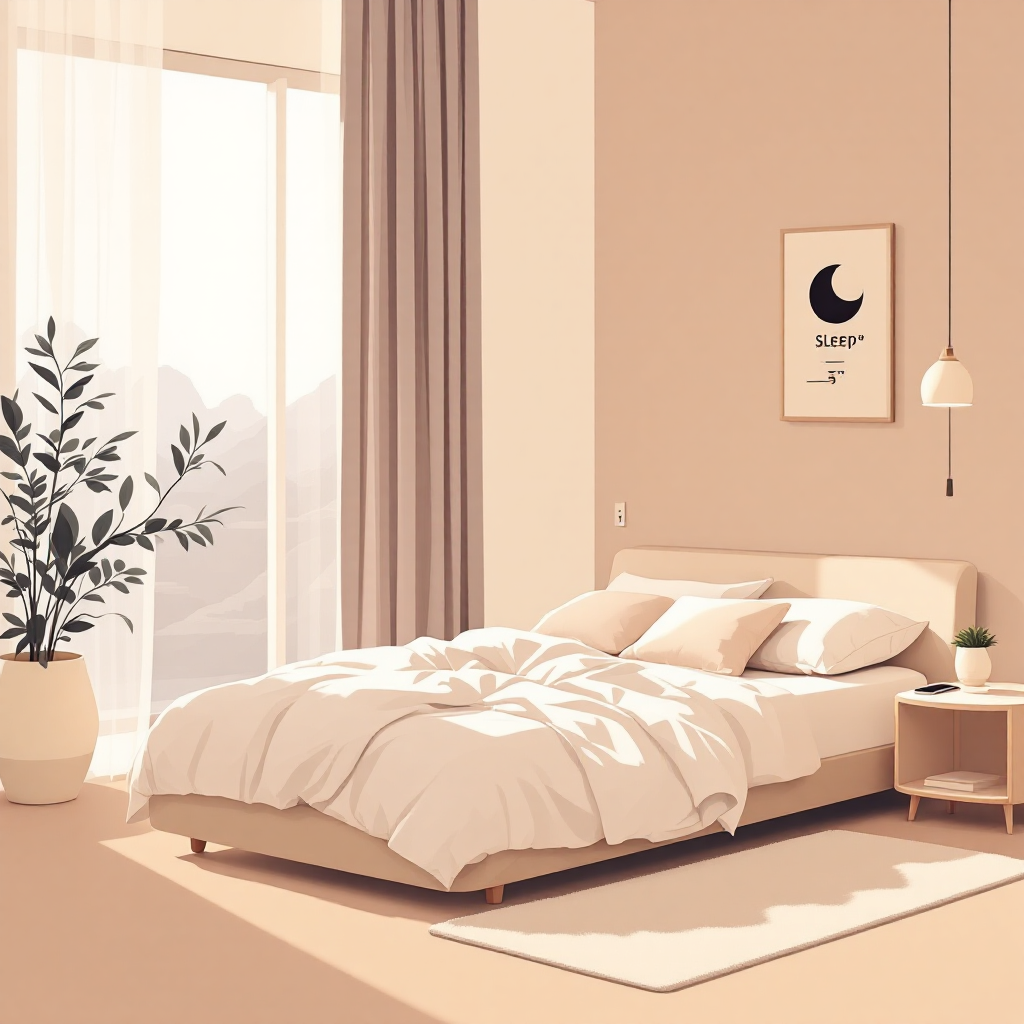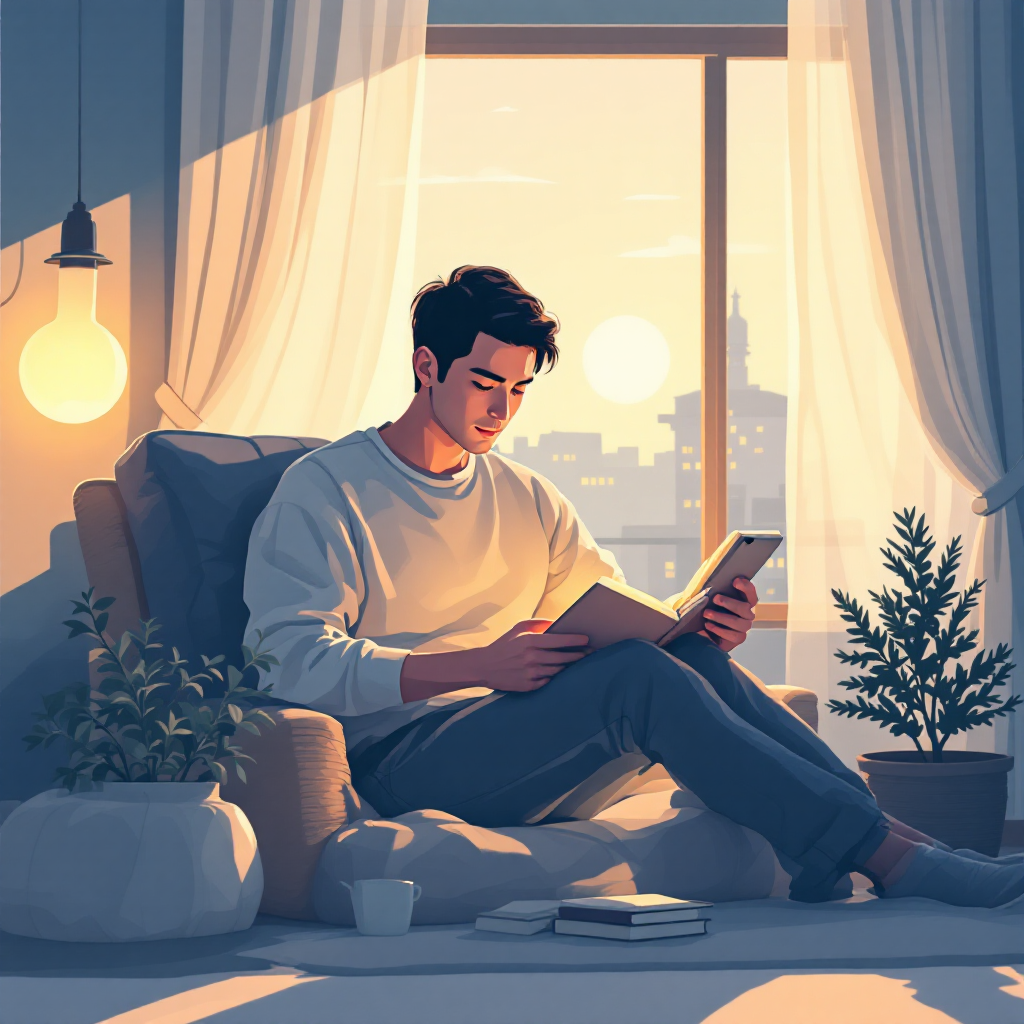What you do during the day dramatically impacts how well you sleep at night. Small daytime habits reset your circadian rhythm and build sleep pressure, making falling asleep naturally much easier.

Daytime Foundations
25%
Morning Sunlight
Get 10–20 minutes of natural light within an hour of waking (even through a window) to reset your internal clock and signal to your body it's time to be alert.
50%
Daily Movement
Aim for 20–40 minutes of moderate exercise like walking or biking. Earlier in the day is better, but any movement helps build healthy sleep pressure.
75%
Limit Naps
Keep naps under 30 minutes and before 3pm to avoid disrupting your sleep drive when bedtime arrives.
100%
Caffeine Curfew
No caffeine after 1–2pm (or 8–10 hours before bedtime). Everyone's sensitivity differs, so adjust based on your response.
Quick win: Try a 10-minute morning sunlight walk tomorrow — note how your sleep feels the next night.
Optimize Your Sleep Environment
Your bedroom either supports sleep or fights against it. These small environmental tweaks often yield significant improvements in both falling and staying asleep.

25%
1 Dark
Use blackout curtains or an eye mask to block all light, including LEDs from electronics.
50%
2 Cool
Aim for 16–19°C (60–67°F), depending on your personal comfort level.
75%
3 Quiet
Use earplugs, white noise, or a fan to mask disruptive sounds that might wake you.
100%
4 Comfort
Choose a mattress and pillow that match your sleep position (side vs back).
100%
5 Tech-Free
Keep phones and tablets out of reach; charge them in another room if possible.
Quick fix: Try a 10-minute "bedroom reset" tonight — blackout, fan, and phone in another room.
Many sleep problems are actually thinking problems. Worry and rumination are sleep thieves, but these evidence-based techniques can help reclaim your rest.
Light, Tech & Timing
Light exposure directly impacts your internal clock and sleep hormone production. Managing when and what type of light you encounter can dramatically improve sleep quality.

The Science Made Simple
78%
Use blue-light filters or warm-tone reading mode if screens are necessary
90%
Avoid bright overhead lights 1-2 hours before bed; use dim lamps instead
90%
Keep a consistent sleep-wake schedule, even on weekends (±30 minutes)
90%
Switch your phone to grayscale mode at night to reduce its attractiveness
Micro action: Try switching your phone to grayscale and enabling bedtime mode for the next 3 evenings.
Nutrition & Substance Use
What and when you consume can significantly impact sleep quality. These simple guidelines help ensure your diet supports rather than disrupts your rest.

Food & Drink Timing Matters
90%
Avoid large meals within 2–3 hours of bedtime. Heavy digestion can disrupt sleep architecture.
90%
Limit alcohol before bed. While it might help you fall asleep, it fragments restorative sleep later.
90%
Use supplements mindfully. Melatonin helps with circadian shifts (short-term). Magnesium or chamomile may help some people.
Smart swap: Replace heavy late-night snacks with a small protein + complex carb combo (like yogurt with a few oats) if you need something before bed.
Quick Fixes for Overthinking Nights
When your brain refuses to switch off, these practical strategies can help quiet mental chatter and redirect anxious energy.

